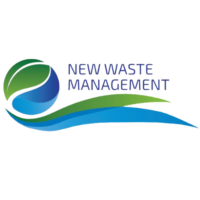
Evolving waste management regulations, such as the Environment Act 2021, present one of the most pressing challenges for UK Local Authorities. These regulations demand significant operational adjustments but also offer opportunities for talking to more customers.

Talking to More Customers: Key to Compliance?
Many regulations, including mandatory food waste collection and stricter recycling targets, rely heavily on public cooperation. Without clear communication, talking to more customers and accessible processes, people may struggle to adopt the required behaviours, leading to lower compliance rates and increased council costs.
For example:
Mandatory Food Waste Separation: Success hinges on the public correctly separating food waste at home.
- Recycling Contamination: Educating the public on what can and cannot be recycled helps councils avoid costly contamination in recycling streams.
To meet compliance goals, councils must ensure that the public feels empowered to play an active role in sustainable waste management.
Strategies to Balance Compliance with Public Engagement
Local authorities can effectively involve the public while meeting regulatory standards by:
✅ Simplifying Instructions: Provide clear, consistent guidelines for waste separation and recycling to reduce confusion and encourage participation[2].
✅ Engaging Through Education: Use campaigns to explain the benefits of compliance, such as lowering landfill use, reducing CO2 emissions, and protecting the environment.
✅ Leveraging Digital Tools: Share collection schedules, recycling tips, and updates via apps and online platforms.
✅ Providing Accessible Services: Make recycling bins, food waste caddies, and other resources easy to access and use.
✅ Hosting Community Events: Organise workshops or “recycling days” where you can start talking to more customers about new regulations and their impact on sustainability.
A Win for Councils…and the Public
Engaging the public not only helps councils meet regulatory standards but also builds trust and a sense of shared responsibility. By involving communities, local authorities can:
✅ Achieve higher compliance rates with less resistance.
✅ Reduce waste processing costs by lowering contamination rates.
✅ Foster long-term behaviour change, creating a culture of sustainability.
The Environment Act 2021 and similar regulations provide a unique opportunity to strengthen partnerships between councils and the public. Compliance becomes a shared success when people are informed, engaged, and empowered.
Building a Better Future: Together
At NWM, we understand that regulatory compliance isn’t just about operational changes – it’s about collaboration or talking to your customers. We work closely with councils to develop strategies that combine efficiency, legal compliance, and public engagement, ensuring sustainable waste management for all.
Contact us today to explore innovative ways to talk to more customers while meeting regulatory goals.
🌐 Visit us at www.newwastemanagement.com
References:
[1] https://www.local.gov.uk/publications/get-act-environment-act-2021
[2] https://www2.local.gov.uk/parliament/briefings-and-responses/waste-reforms-briefing


